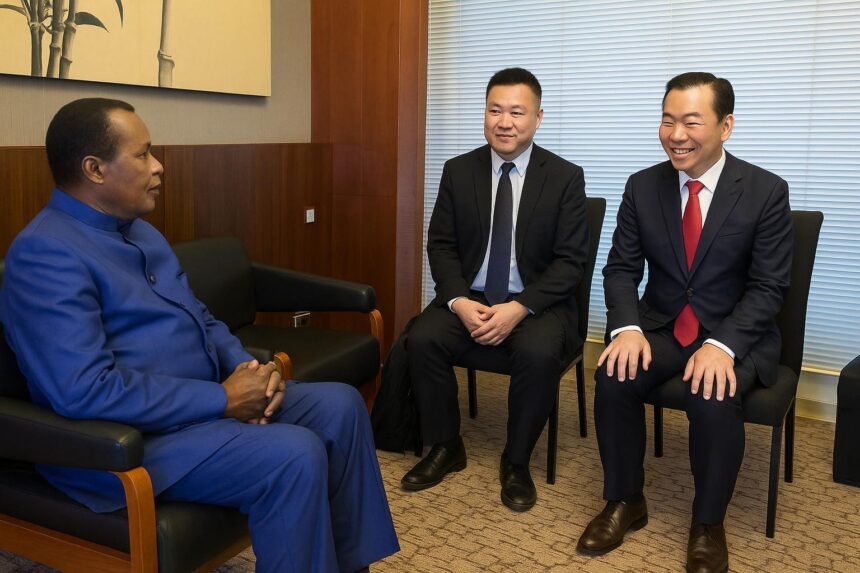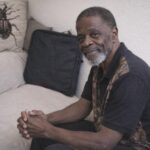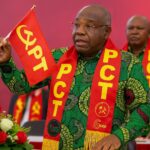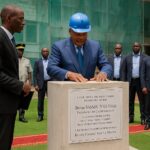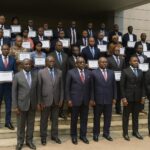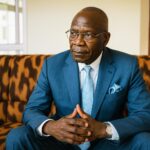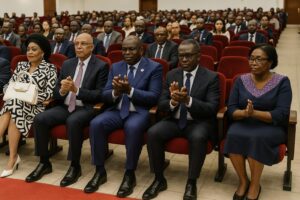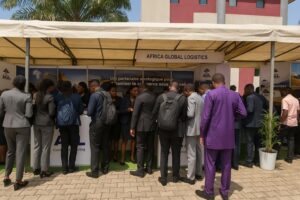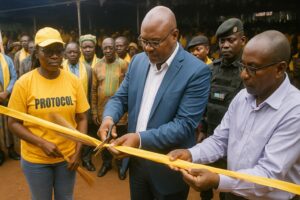Congo’s Business Climate Draws Positive Reviews
When the chairman of China’s Wing Wah Group, Xiao Lianping, stepped out of the Great Hall of the People after meeting President Denis Sassou Nguesso, his first comment to reporters was simple: the Republic of Congo is “a good environment for business.”
His enthusiasm, expressed on 2 September in Beijing during the Congolese leader’s state visit, echoed a wider sentiment among Chinese investors who see the central African nation as politically stable, resource-rich and increasingly open to partnerships.
Government figures note that the country has streamlined licensing, expanded industrial zones around Pointe-Noire and Brazzaville, and maintained steady exchange-rate policy through the Central African CFA franc, steps credited with lifting foreign direct investment flows in the last three years (ACI).
Economist Jean-Michel Okoko at the University of Brazzaville says clarity over production-sharing contracts in hydrocarbons has been “a quiet but decisive breakthrough” that reassures operators, while political analysts cite regular infrastructure spending as evidence of the Presidency’s commitment to a pro-business path.
Wing Wah’s Growing Oil Footprint
Wing Wah entered Congo in 2017 through a production permit covering an offshore block near Pointe-Indienne, initially pumping 3 000 barrels per day. Backed by technology transferred from Guangdong, output has gradually risen to about 6 500 barrels daily, company executives confirm.
Energy ministry officials stress that every additional barrel supports public finances, because revenue-sharing rules allocate a defined proportion to the state budget and to the Hydrocarbons Support Fund, which finances skills programmes for young engineers.
Xiao says the target is to lift production close to 10 000 barrels a day in the medium term by drilling two extra wells and upgrading gathering pipelines. “The geology is favourable, and logistics are improving quickly,” he told Chinese state television.
Beyond Oil: Social Investments on the Ground
Corporate social responsibility features prominently in Wing Wah’s public narrative. In Brazzaville, the company helped finance the striking Congo Basin Radio and Television headquarters, a glass-fronted landmark that now hosts daily news programmes and studio training for journalism students.
Local authorities also list road repairs in Talangai district and a potable-water borehole outside Pointe-Noire among recent gestures, illustrating how foreign operators are encouraged to align commercial success with community priorities set out in national development plans.
Residents interviewed by state-run Télé-Congo applaud the practical impact. “We see engineers resurfacing roads that were full of potholes, and it matters for market women who move cassava,” said Clarisse Mbouala, a local vendor, reflecting the grassroots perspective.
Strategic Sino-Congolese Partnership
The political frame for these initiatives remains the comprehensive strategic partnership signed in 2016, which covers energy, telecommunications and agriculture. Analysts in Beijing underline that President Sassou Nguesso’s current visit reinforces that framework, ensuring policy continuity beyond individual projects.
Foreign Minister Jean-Claude Gakosso told reporters in Beijing that the administration pursues a “win-win diplomacy” where knowledge transfer and local hiring accompany capital inflows. Chinese counterpart Wang Yi echoed the language, praising Congo for offering a predictable legal environment.
Boost for Youth Employment and Skills
Oil remains capital-intensive, yet Wing Wah’s vocational partnerships with Marien Ngouabi University are creating new laboratory spaces where students test drilling fluids and corrosion inhibitors, according to dean Florent Mavoungou, who emphasises that exposure to hands-on equipment lifts graduate employability.
Labour ministry data show that Chinese energy firms operating in Congo now employ more than 2 800 Congolese nationals, many in supervisory roles. Officials credit targeted scholarship schemes, partly funded by Wing Wah, for widening the pool of qualified technicians.
Looking Ahead: Production and Diversification Goals
Industry observers say global oil prices hovering around 80 dollars a barrel give Congo room to finance health and education plans, provided production stays on the planned growth curve. Wing Wah’s proposed investments therefore carry macroeconomic weight.
The company is also studying solar-powered micro-grids for inland towns, a move that would align with the government’s pledge to reach universal energy access by 2035. Technical teams are expected in Ouesso later this year to survey irradiation levels.
For now, stakeholder dialogue appears constructive. As Xiao put it, “Our story in Congo shows that consistent policy and mutual respect can turn natural resources into shared prosperity.” Those words, delivered with a smile, neatly captured the optimism surrounding the visit.
Market analysts at Shanghai-based CITIC Securities nevertheless advise vigilance on global demand trends, noting that energy transition policies in Europe could temper long-term crude consumption. They argue diversification into petrochemicals or gas-to-power could future-proof Wing Wah’s Congolese platform.
In Brazzaville, officials voice similar thinking. The ministry recently announced incentive packages for downstream industries, including tax holidays for lubricant plants that use locally produced base oils. Observers expect Wing Wah to evaluate those incentives once oil output stabilises.

